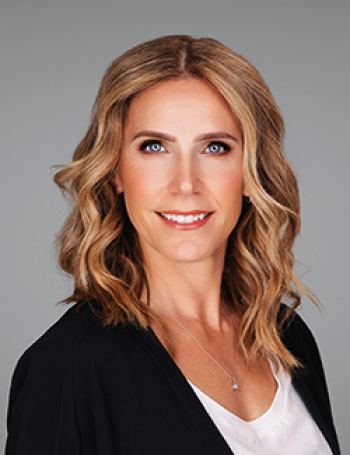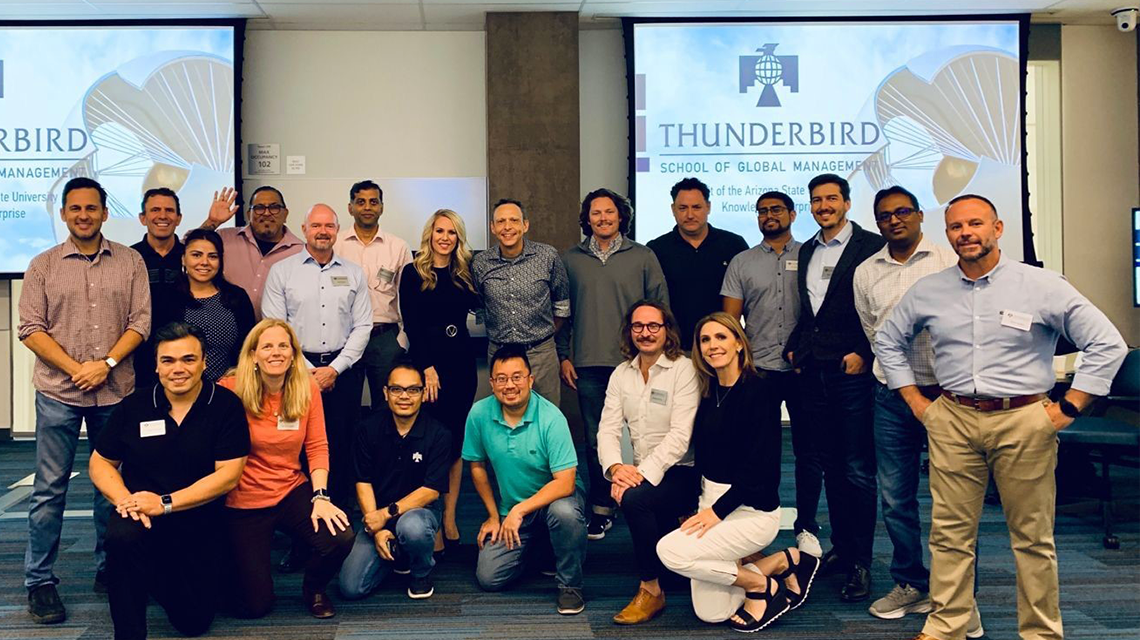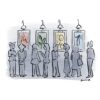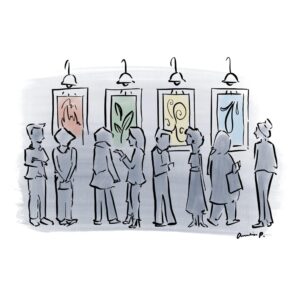ASU researchers recommend 5 systemwide changes to improve process
Being the victim of a crime is a difficult experience that comes with physical, mental, emotional and financial consequences ranging from moderately inconvenient to traumatic. Frequently, as part of dealing with the aftermath, victims seek restitutionA process in which the courts order a person convicted of a crime to pay for financial losses directly caused by the crime. and compensation from a state-run program for victims.
Although there is a process in place to facilitate this resolution, it is not perfect. In fact, victims often find themselves facing challenging roadblocks along the way.

Photo courtesy Adobe Stock
In a recent report led by Professor Leslie Paik of the T. Denny Sanford School of Social and Family Dynamics at Arizona State University, researchers delved into the experiences of 94 crime victims in Arizona to shed light on how restitution and compensation are handled, and find ways to improve processes. The insights gathered from victims’ personal stories and experiences unveiled several key points of frustration within the system.
A chance to enhance processes
Though there were some positive aspects to share, like compassionate caseworkers and successful outcomes, the researchers heard several difficulties that illuminated opportunities for improvement. The most common pain points centered on unclear communication, a lack of voice in the court process, complex bureaucratic procedures and inadequate or delayed funds.
Some victims, for example, had trouble reaching the right people to help them. They spent countless hours calling various departments but were transferred elsewhere or had their calls go unreturned.
Others shared how the outcome itself wasn’t always ideal. A few recounted the frustrations of finally receiving the payment they needed, but not receiving enough money to cover necessary costs. Ultimately, they were too exhausted from navigating the court process to push for the amount they felt entitled to.
Victims also talked about the tedious and confusing paperwork, with one person being asked to fill out the same form multiple times on separate occasions — which delayed progress with the case.
Drawing from these insights and many others, the researchers compiled responses and came up with five recommendations specifically aimed at addressing the most challenging aspects of this system:
- Streamline communication between victims and the legal system to ensure that victims are well-informed about the progress of their cases and the status of their restitution.
- Offer versatile restitution options, including both financial and nonfinancial means of restitution and compensation. That way, victims get the specific help they need.
- Reevaluate the timing for outreach, deadlines and the disbursement of funds to expedite the process and alleviate victims’ financial burdens faster.
- Simplify the eligibility and application process to reduce bureaucratic barriers and the resulting confusion.
- Invest in a centralized electronic notification/tracking system so victims can access their case details directly and transparently. This idea stemmed from the interviews with the victims. Many agreed it would help simplify the process and reduce unnecessary phone calls.
Not only does this approach address the pain points victims described, but it’s also more comprehensive and does not solely rely on the ability of the person convicted of the crime to pay restitution — a difficult feat for those who are jobless, too young to work or facing other case-related financial obligations. It is instead meant to better recognize and address the nuances of each unique situation in a scalable way.
“We offer these recommendations, knowing they are ambitious in scope but also are grounded in the individual victims’ experiences and desires,” the researchers say.
“It is our hope that they will inspire and inform jurisdictions’ possible steps forward to make the legal system more responsive to the victims, while also not exacerbating the excessive legal debt imposed on people charged with the crimes who cannot afford to pay it back. In doing so, there is greater opportunity not just for the individuals charged with the crime to take accountability, but also for the legal system to take accountability … in administering fair and equitable justice.”

Editor’s note: This story is part of a series of profiles of notable fall 2023 graduates.
As the founder and president of Nutritional Manufacturing Services (NMS) based in Chandler, Arizona, Shannon Heying is always looking for ways to become a better leader and provide the highest-quality nutritional products and solutions to her customers.

Shannon Heying
Download Full Image
Earning an Executive Master of Global Management (EMGM) at Arizona State University’s Thunderbird School of Global Management proved to be one of these ways.
“I chose Thunderbird to enhance my skills and stay competitive in the global market. Back in 2014, Thunderbird was on my radar, but its full-time schedule and Glendale location didn’t align with my business and family life. Fast forward to 2022, an email about the executive master’s degree program grabbed my attention. It promised flexibility, an enriching space for collaboration, and networking with diverse professionals, allowing me to balance education, career, and family,” the Outstanding Graduate Student said.
The deciding factor for Heying to enroll at Thunderbird? “The new modern facility at ASU’s Downtown Phoenix campus, equipped with cutting-edge technology and staffed by renowned experts, confirmed I was making the right choice.”
Heying made great use of the state-of-the-art facility and her time in the EMGM program, putting the knowledge and skills obtained to land NMS a spot in the rankings of the Top 50 Private Fastest Growing Companies by the Phoenix Business Journal and Chandler’s Top 100 by the Chandler Chamber of Commerce.
And, after graduation, she plans to continue to take her business — and her own growth — to the next level.
“My time at Thunderbird has been incredibly rewarding and transformational. I’ve encountered amazing individuals and acquired skills that have propelled me toward my personal and professional aspirations,” Heying stated.
“My primary focus post graduation is to expand my business, drawing on the valuable insights and knowledge acquired at Thunderbird. I’m committed to mentoring and empowering my team, fostering their career development while also striving for a more balanced life.”
Below, Heying elaborates on her Thunderbird journey.
Question: What do you love about being a T-bird?
Answer: Being a T-bird is something I greatly value, especially because of the people. This includes the professors and administrative staff, who are exceptional in their roles, and my cohort, a group of diverse and inspiring individuals. What’s even more remarkable is the instant welcome and sense of belonging I feel from the alumni. They create a supportive and inclusive community ready to connect, share insights and collaborate. This network of knowledgeable and open-minded people spanning the globe and various industries is invaluable. The collective wisdom, diverse perspectives and strong sense of community make being a T-bird a unique and enriching experience.
Q: What’s something you learned while at Thunderbird — in the classroom or otherwise — that surprised you or changed your perspective?
A: One of the more unexpected lessons from Thunderbird was learning more about myself, which in turn made me a more effective leader. For example, an assessment revealed my highly individualistic nature. I felt very stressed when I had my first group project and recognized the connection there. The vulnerability of not being in control during intense and challenging projects was nerve-racking. However, what I learned was that these collaborative environments, enriched by diverse backgrounds, lead to a much greater outcome. In every team, I found myself among highly intelligent individuals who excelled in areas where I had less expertise. Their support and coaching were invaluable. This experience helped me reshape my approach to leadership in my own company, fundamentally altering my approach to collaboration and reaching higher levels of entrusting others with leading important projects.
Q: Which professor taught you the most important lesson while at Thunderbird?
A: I gained so many valuable insights from some incredible professors, making it difficult to single out just one here. However, one area where I experienced significant learning was in Professor Youngdahl’s Digital Transformation course. This topic was a key reason I returned to school, as I aimed to keep my business relevant and connect with experts in the field. Professor Youngdahl’s course was particularly impactful, equipping me with the knowledge and tools to enhance efficiency and modernize my business practices. While I have grown and evolved from the lessons of all my exceptional professors, creating a better version of myself, it’s the practical and applicable lessons from this course that I find myself actively applying in my business today.
Q: What is your favorite story from your time at Thunderbird?
A: A great story from my time at Thunderbird involves a remarkable effort by one of our cohort members, Brian. Professor Ramaswamy once shared his regret about missing an opportunity to meet a certain business leader he had done a case study on that he deeply admired. Inspired by this, our classmate went above and beyond as he managed to coordinate a surprise Zoom session with this business leader, who in turn gave us an inspirational talk and shared his story. It was not just impressive in terms of the effort and coordination required, but also deeply touching to see how it moved our professor. This experience highlighted the spirit of initiative and community that defines Thunderbird.

Heying smiles with her fellow E32 cohort members in TGM 530: Big Data in the Global Economy, one of the core classes of the EMGM curriculum. Courtesy photo

This post was originally published on this site be sure to check out more of their content


